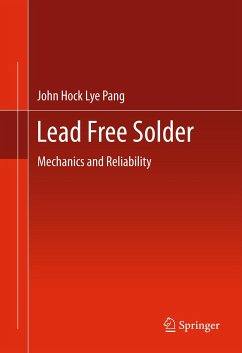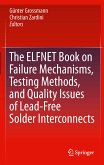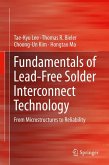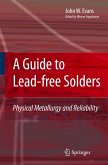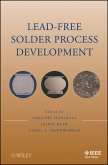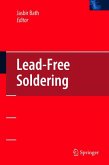Lead-free solders are used extensively as interconnection materials in electronic assemblies and play a critical role in the global semiconductor packaging and electronics manufacturing industry. Electronic products such as smart phones, notebooks and high performance computers rely on lead-free solder joints to connect IC chip components to printed circuit boards. Lead Free Solder: Mechanics and Reliability provides in-depth design knowledge on lead-free solder elastic-plastic-creep and strain-rate dependent deformation behavior and its application in failure assessment of solder joint reliability. It includes coverage of advanced mechanics of materials theory and experiments, mechanical properties of solder and solder joint specimens, constitutive models for solder deformation behavior; numerical modeling and simulation of solder joint failure subject to thermal cycling, mechanical bending fatigue, vibration fatigue and board-level drop impact tests. This book also:
- Discusses the mechanical properties of the lead-free solder materials used in the industry
- Focuses on mechanics of materials theory inelastic, plastic, creep, fatigue and fracture assessments
- Presents materials testing and characterization for bulk solder, solder joint and soldered assembly
- Details how to use reliability test and analysis for thermal cycling, cyclic bending and drop impact
Lead Free Solder: Mechanics and Reliability is an ideal book for engineers working with semiconductor packaging and in the electronic manufacturing industry.
Dieser Download kann aus rechtlichen Gründen nur mit Rechnungsadresse in A, B, BG, CY, CZ, D, DK, EW, E, FIN, F, GR, HR, H, IRL, I, LT, L, LR, M, NL, PL, P, R, S, SLO, SK ausgeliefert werden.

